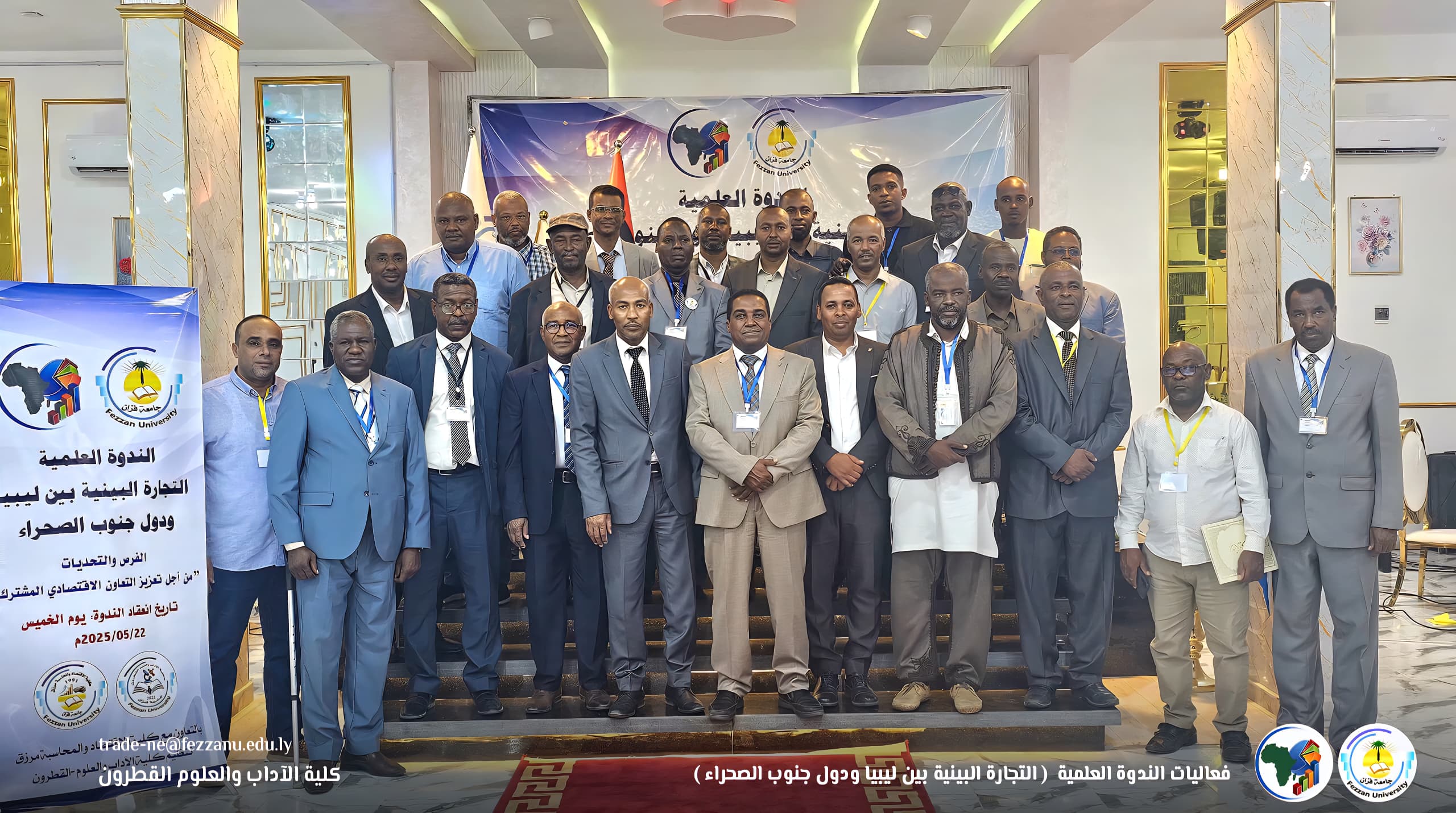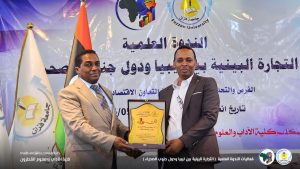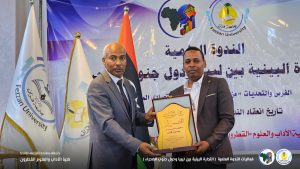
Closing of the Seminar on "Intra-Trade Between Libya and Sub-Saharan Countries"
● Under the slogan of enhancing mutual economic cooperation, the scientific seminar titled “Intra-Trade Between Libya and Sub-Saharan Countries” concluded yesterday, Thursday, May 22, 2025. The event was organized and supervised by the Faculty of Arts and Sciences in Qatroun in collaboration with the Faculty of Economics and Accounting in Murzuq.
● The seminar included two sessions; the first session discussed four research papers, while the second session featured six papers in which researchers addressed ways to enhance economic cooperation and develop trade exchanges between Libya and the countries of the region. The seminar concluded with the distribution of certificates of appreciation to the participants and to the supporting and sponsoring entities that contributed to the success of this scientific event, in recognition of their efforts. At the end, the scientific committee announced the recommendations that emerged from the seminar, which are as follows:
1. Implement current laws related to special economic zones and free zones while updating legislation to align with international standards and attract investors.
2. Reduce reliance on oil and gas and encourage manufacturing industries and logistics services with a focus on high value-added sectors.
3. Establish free zones along the southern borders to serve as a center for trade exchange.
4. Organize exhibitions and joint forums between Libya and African countries to showcase products and explore partnership opportunities.
5. Create a comprehensive database on trade exchanges between Libya and African countries to serve as a reference for decision-makers.
6. Work on improving the infrastructure for land and air transport and directly connecting Libya to major African cities and ports in collaboration with the European Union.
7. Expand the participation of the private sector in enhancing economic cooperation to contribute to job creation and reduce the unemployment rate.
8. Increase cooperation between Libya, Chad, and Niger in the economic field by exploring the utilization of available resources to achieve common interests.
9. Advocate for supporting research and scientific studies, organizing conferences and seminars periodically, and monitoring developments and evaluating the results of economic cooperation between Libya and African countries.
10. Adopt transit trade as a pillar for developing and diversifying income sources to support job creation and reduce dependence on oil.
11. Enhance security and services along transit corridors.
(Media Office of Fezzan University).


